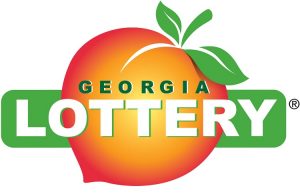The Fayetteville City Council got a report last week on which areas of the city might be beneficiaries of redevelopment tax breaks.
Bleakly Group representative Ken Bleakly on Sept. 5 gave the council an update on potential Tax Allocation District (TAD) redevelopment projects that are intended to breathe life into some of the city’s stagnant commercial areas. The TAD referendum passed voters’ muster last year.
Bleakly said the five possible TAD parcels and additional TAD project areas that make up the TAD district are located largely along Ga. Highway 85, the main north-south corridor through the city. All totaled, the 133 parcels are situated on 221.7 acres.
He stressed that the TAD projects and parcels are hypothetical and are used for financial modeling purposes.
The five TAD projects located along Hwy. 85 are largely the older commercial areas of the city identified several years ago. Those include areas south of Banks Road on the east side of Hwy. 85, the 692 Shopping Center area south of Ga. Highway 314 and the old commercial area north of Georgia Avenue on the east side of Hwy. 85. Two other hypothetical TAD project areas include one situated on the west side of Hwy. 85 between Hood Avenue and Georgia Avenue and another taking in the area of the Fayette County government complex in downtown Fayetteville and the Fayette County School System property immediately to the west.
Beyond the hypothetical TAD areas, a smaller number of hypothetical TAD parcels are also located adjacent to the TAD project areas, along Hwy. 85 South near Grady Avenue, along Ga. Highway 54 East in the area of Jeff Davis Drive and at the Villages at Lafayette development on Hwy. 54 West.
Taken as a whole, the 133 TAD parcels have a combined assessed value of $26.01 million, account for 3.69 percent of the city’s property tax digest and are substantially under the 10 percent state limit on the amount of a city’s tax digest that can be included in TAD districts, Bleakly said.
Bleakly advised the council on the timeline of the TAD implementation process to have it active in 2014. The next step in the process, a public hearing on the redevelopment plan, is expected in October.
Fayetteville voters last year overwhelmingly supported the Redevelopment Authority Powers referendum that gives the city a way to enhance the potential to have older commercial properties redeveloped. The 2012 vote passed with nearly 70 percent of voters favoring the measure.
The Redevelopment Authority Powers referendum on the November ballot was designed to use a tool Georgia calls a TAD to have the property taxes on a specific piece of property frozen until the redevelopment is complete. Under the plan, the property taxes continue to be collected at the frozen rate.
An example of one of the parcels identified for redevelopment is the 692 Shopping Center on North Glynn Street, former home of the Longbranch Restaurant and other businesses. Situated on 3.9 acres with a building totaling 41,975 square feet, the parcel sold in 2001 for $1.8 million. In 2006 the fair market value had dropped to $1.747 million. In 2007 and continuing through 2011 the fair market value was $1.308 million. Now largely unoccupied, fair market value in 2012 had decreased to $1.166 million.
A TAD is not a new tax, but rather a diversion of existing taxes in a specific geographic area to be used for redevelopment purposes. Financing for a TAD comes as the tax base for the project area is frozen to form a base valuation, with property taxes used to pay eligible infrastructure-affiliated redevelopment costs. Bonds may also be issued to help finance projects. Subsequent annual tax revenues in the project area are used to fund the city’s portion of the redevelopment.
Redevelopment powers will not change the existing method of setting property taxes. TAD financing does not rely on tax increases from properties that are not subject to redevelopment and apply only to those property owners who choose to have their land included within the TAD area.
TAD projects must also gain approval from the Fayette County Commission and Board of Education since the property tax revenues generated in the TAD project area would stay there during the project period to help defray the costs of the infrastructure and other improvements designated in the project document.
Such redevelopment projects, at least in terms of increasing property tax revenues, take a long-term view of those revenues. By issuing an approval, the county commission and school board would agree to forego any incremental increase in property taxes on the designated property during the redevelopment period. Those tax levying entities would benefit down the road, after the property is redeveloped, because the value of the redeveloped property would have a higher value and would generate more property taxes than would have been generated if the site had not been redeveloped.
Bleakly noted that a TAD development would likely have positive ramifications in the areas adjacent to the project. Adjacent properties often receive upgrades that, in turn, increase the value of those properties and result in additional property tax revenues before the TAD properties go back on the tax rolls at full value.












Leave a Comment
You must be logged in to post a comment.